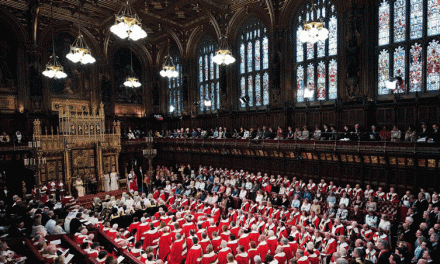Recent remarks from the top of the European Commission have added more evidence to the mound of facts on the real intentions of Brussels. Viviane Reding, Vice President of the Commission, stated as clearly as she could that “We need to build a United States of Europe with the Commission as government and two chambers – the European Parliament and a ‘Senate’ of Member States”.
The mind boggles in assessing where democracy comes into this. The Commission is not elected, and presumably she would want to keep it that way, leaving the European Parliament and ‘Senate’ as the only elected parts. The Parliament is of course designed to treat Europe as one whole and still suffers from a democratic deficit, while the Senate would presumably consist of national governments in a reduced form. These plans are hardly signs of democratic progress.
Meanwhile, Commission President Jose Manuel Barroso fell for his own EU mythology by stating that “No other political construction to date has proven to be a better way of organising life to lessen the barbarity in this world” when referring to Brussels bureaucracies.
Barroso of course is ignoring NATO’s contribution to peace in Europe, the geo-political situation of the Cold War that dominated European security for 45 years, and the fact that, to date, the EU has been more of a political fudge of competing national interests. However, the United States of Europe that Reding is explicitly calling for would be a clear move away from anything that could have a claim on 50 years of peace to a new construction that would increase the risk of conflict and dictatorship.
Nick Clegg’s blindness
In Westminster, acknowledgement that the EU is an overtly political project seeking to take more and more power from national governments is still the elephant in the room no one will talk about. The Liberal Democrat’s Nick Clegg, when talking about Europe, relentlessly refers to economics, describing any thought of renegotiating as ‘economic suicide’.
Whilst portraying the EU as a supportive organisation and one Britain should want to be in, Clegg describes it as “wishful thinking to suggest that we could…negotiate…laws that suit us…The rest of Europe simply would not have it…” In stating this, he is betraying the presence of a nasty undercurrent of political jealousy against Britain while still bizarrely claiming that, inside the EU as it is, Britain can campaign and negotiate for reform. It is precisely because reform has failed and is not on the agenda that Britain needs to renegotiate!
When touching on issues of sovereignty, Clegg has used the fear weapon, stoking the absurd idea of a ‘catastrophic loss of sovereignty’ that would result from leaving the EU. This view, in light of Commissioner Reding’s plans to brush away member states into a backwater Senate, is laughable.
Clegg also has not grasped that no one is calling for isolation. His idea that a UK out of Europe is a UK ignored on the international scene is worryingly ignorant. The UK needs to be set free to compete internationally and build trade with the US, the Commonwealth, South America, China, India, Russia, the Middle East and Africa. And the UK also wants and needs to cooperate with the EU. Eurorealism is highly positive: we want to win everywhere, but can only do that when we cease flogging the dead-horse of European reform.
Clegg comes unstuck when dealing with the political side of Europe. Whilst acknowledging the evidence from surveys that faith has been lost in the EU institutions across Europe, he has no response for fixing the gulf between the people and the ideology of the institutions, other than the vague word ‘reform’ and resorting back to economics. Yet as the immigration debate regularly shows, life is more than economics. And the Liberal leader is aware that economics have a political end – he has called for debt transfers between EU governments, creating “…a fiscal accompaniment to monetary union.” He seems to be unaware or in denial that the more economic power is handed to Brussels, the more a United States of Europe de facto comes into existence. Clegg’s one salient remark about Europe is his call that the EU needs to present a vision to the people of the direction in which it is moving. A vision would return confidence, outlining a future that at present is a fearful mystery. Yet Clegg has missed the fact that Viviane Reding has already outlined this vision: it is a vision of a new superstate.
Labour and Ed Miliband
Ed Miliband of Labour will not talk about the political ambitions of Europe either. In a 2012 speech, the list of failings he outlined related to the European Union was entirely economic: five million unemployed young people across the EU; 25 million unemployed in general; and of course the Euro as a currency.
Miliband’s wider view supports Barroso’s delusion that the EU stopped war. Referring to the EU as a noble success over the evils of war, the Labour leader notably talks of economic and political co-operation, instead of using the word integration.
Co-operation there may have been; but the Commission is clearly pushing for, and the European Treaties are clearly leading towards, much greater levels of sovereignty being accumulated in the centre, stripping the constituent parts of Europe of individual authority. Miliband in government would ironically lead to him hand-cuffing himself by agreeing to give away Britain’s power and then being unable to do anything. It would literally be pointless electing him.
Labour and the Liberals thus both appear to be lost in terms of having any policy on Europe. They advocate de facto a stronger centre and thus less power for national governments, therefore lessening their own democratic accountability. Until the Left can come to terms with the EU-reality, it can never make sense voting for them.

